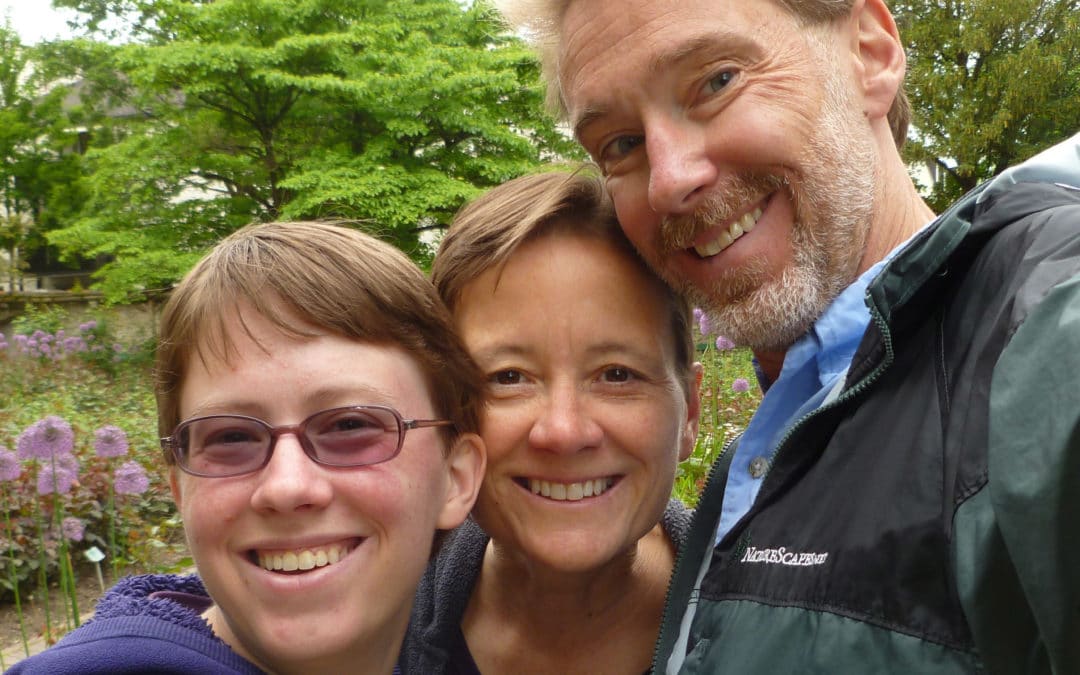by EK Green, far left
I’ve been incredibly fortunate to have great parents who put a tremendous amount of work and time and love into raising me and continuing to support me. They made their housing decisions based on getting me into the best school districts they could afford, and always supported my education. They drove me to 6 am cross country practices all through high school, trained with me through the offseason, and came to track and cross-country meets around the state. They paid my way through college and continue to always be there for me.
Their example has shown me that raising a child well is a full time, lifelong commitment. I’m incredibly grateful for all they do for me, especially as I see others close to me who don’t receive the same kind of support from their parents. I see friends – especially those with siblings – who are put into roles they shouldn’t have to take on: the role of parent to siblings, or mediator between parents.
Potential parents who aren’t able and/or willing to take responsibility for themselves, their emotions, and their obligations to others, shouldn’t have kids. Potential parents who aren’t able and/or willing to put their kid(s) first shouldn’t have kids.
My parents have been patient, thoughtful, and compassionate as I’ve come out and come to an understanding of my own various queer identities. I have friends who aren’t in the same fortunate position. Some do not feel comfortable talking with their parents about their identity; others have parents who ignore or disrespect who they are. Of my close friends, most are queer, neurodivergent, or mentally or physically disabled (or some combination of the above). The assumption of many parents that their child will be straight, cis, neurotypical*, and without disabilities, etc. is wrong and unfair to their child.
Even if their child is straight, cis, etc., there are often other unfair assumptions, such as a child will fill a particular gender role and/or have certain social aspirations. A child is an individual, not the projections of a potential parent’s dreams or wishes. No child should come into the world unwanted, and no child should end up resented because they aren’t what their parents imagined. If potential parents are not prepared – practically and emotionally – to support their children, regardless of who they end up being, and what their needs are, they shouldn’t have kids.
As an adult, I’ve never wanted kids of my own. Although when I was younger I briefly considered that I might adopt kids, as I’ve gotten older and realized that I’m not obligated to have kids, I’ve come to the conclusion that raising kids isn’t something I want for my life.
Even if I did, I know myself and what I value. Stability, space for myself, and self-determination are important to me; none of which are compatible with the level of work and sacrifice required to raise a child. Most of my close friends also don’t want kids, for similar reasons. Those who do are actively invested and eager to have raising a kid be a part of their life, and have thought about it significantly, rather than simply accepting that as the default Plan For Their Lives.
While not interested in raising kids of my own, I do plan to be a part of the support network for my friend’s kids. I’ve had conversations with my friends about what kind of “cool not-blood-related nuncle***” I’ll be for their kids – such as introducing them to my favorite cartoons and comics as age-appropriate, teaching them about Cool Science, taking them to natural history museums, and getting them registered to vote when they turn 18. Friends of my parents have played a variety of important roles in my life – I wouldn’t be where I am today without them and their support – so I hope to be that kind of person to my friends’ kids. We all know – village, child, etcetera.
* And if parents are not willing to vaccinate – and thus risk their kids dying because they don’t want an autistic kid – they absolutely should not have kids.**
** Vaccines don’t cause autism, but that’s not the point.
*** Borrowed from Ann Leckie’s Provenance, where it’s the term for a nonbinary sibling of a parent.

